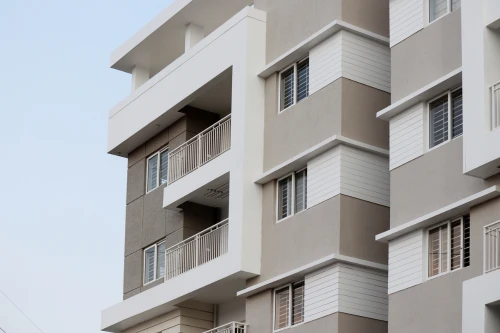Renting to college students comes with unique challenges

A Landlord’s Guide to Renting to College Students
Renting to college students can be a profitable venture, particularly in cities with thriving academic institutions. However, it comes with unique challenges that require thoughtful planning. From crafting student-specific leases to handling noise complaints, here’s a comprehensive guide to help landlords manage a rental for students successfully.
Understand the Student Tenant Profile
College students are typically first-time renters, financially dependent on their parents or guardians, and may have limited understanding of rental responsibilities. Many seek housing close to campus with flexible lease terms and affordable pricing. They often prioritize proximity to public transport, internet access, and communal spaces.
Recognizing their priorities—and limitations—can help landlords set realistic expectations for students renting a house and build better landlord-tenant relationships.
Tip: Communicate clearly and frequently, especially at move-in and move-out. Providing a checklist or welcome packet can help students understand their responsibilities.
Build a Student-Friendly Lease
A clear, detailed lease is essential when renting to students. It’s important to outline all expectations plainly. Include clauses on rent due dates, late fees, subletting, guest policies, maintenance obligations, and cleaning expectations.
Given that students may be on varying academic schedules, consider offering flexible lease options like 9- or 12-month terms. Allowing for summer sublets—with landlord approval—can also attract more interest.
Tip: Avoid legal jargon. Make the lease easy to understand while still being legally sound. Consider including examples of rule violations and consequences to reinforce expectations.
Require a Guarantor or Co-Signer
Because most students lack a rental or credit history, requiring a guarantor (often a parent or guardian) helps mitigate financial risk. The guarantor agrees to take responsibility for rent payments if the tenant defaults.
It’s advisable to conduct background and credit checks on both the student and guarantor. Keep a formal co-signer agreement on file that aligns with your lease terms.
Tip: Set a minimum income requirement for guarantors (e.g., 3x the rent) and verify their financial stability.
Screen Your Tenant Today!
Gain peace of mind with AAOA’s credit, criminal, and eviction reports.
Prepare for High Turnover and Plan Ahead
One of the most consistent challenges in renting to college students is high turnover. Leases often end during summer, which can create vacancy gaps if not planned carefully.
To reduce downtime, start marketing the unit several months before the end of the lease—ideally around spring break. Offering incentives for renewing leases early or for referrals can also help retain reliable tenants.
Tip: Use a move-out checklist and schedule pre-move inspections to keep turnover efficient. Consider investing in durable, easy-to-clean materials to make quick turnarounds more manageable.
Address Property Wear and Tear Proactively
Young renters may not be as diligent with property upkeep. Expect more wear and tear, especially in high-use areas like kitchens and bathrooms. Furniture, flooring, and appliances may show signs of heavy use faster than in typical rentals.
Conduct regular inspections—at least once per semester—and maintain an open line of communication about maintenance requests. Implement clear procedures for reporting damage and define what constitutes normal wear and tear versus neglect.
Tip: Provide basic maintenance guides for common issues like resetting breakers or unclogging drains. Keeping students informed can reduce unnecessary service calls.
Manage Noise, Parties, and Neighbor Relations
Noise complaints and parties are common concerns with rentals for students. Social gatherings and late-night activities are often part of college life, but as a landlord, it’s essential to strike a balance between tenant freedom and community peace.
Setting clear rules on quiet hours and guest policies is crucial. Make it clear that parties violating lease terms can result in penalties or eviction. Start by setting clear expectations in the lease. It should define “quiet hours” (typically 10 p.m. to 8 a.m.), set limits on large gatherings, and cover explicit rules regarding noise levels. It’s also wise to outline consequences for violations, such as fines, written warnings, or in severe cases, eviction.
Tip: Encourage neighbors to report concerns. Consider conducting periodic drive-by inspections or scheduled property walk-throughs, especially after weekends or holidays, to ensure compliance.
Source: Genuine Property Management















 Accessibility
Accessibility